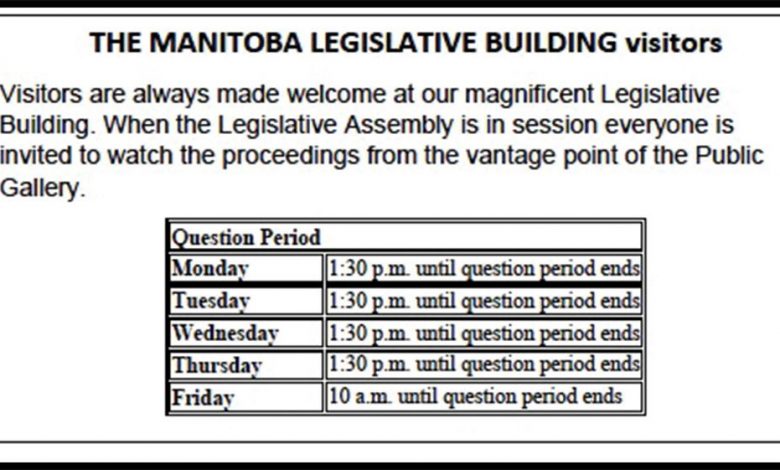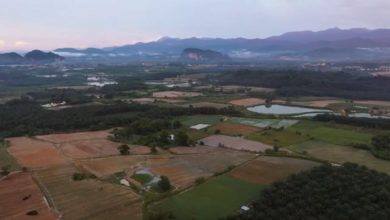iSpeak: Allow Public to Participate in Decision Making


When I was on holiday in Winnipeg, Canada, I visited the Legislative Assembly Building of Manitoba which is listed as a tourist destination. I went there on a Saturday mid-morning when the temperature was minus 15 degrees centigrade. In spite of the cold, a group of people were protesting against their PM in front of the building. I was wondering what would happen to a person protesting against our PM in this country. Probably it would be the end of the road for him.
The building is at the centre of an open space which was covered with snow. There was no fencing. At the entrance of the building, there was a security guard who checked my IC and asked me to sign a register. He returned my IC and handed over the pass.
Since Saturday is a holiday no one was working and the place was deserted except for a few sightseers. While walking along the narrow corridors of the building which was built in 1920, I noticed a signboard on one of the rooms saying Opposition Leader. They give due recognition to the opposition leader.
At the entrance to the Public Gallery, there is a signboard saying “Members of the public are welcome to observe proceedings of the Legislative Assembly when it is in session from the Visitor’s Gallery. Question Period (Oral Questions) is probably one of the most exciting times for a visitor to view the proceedings of the Legislative Assembly.”
Timetable of sittings from Monday to Friday was given and the Question Time was specified. There is a code of conduct for the visitors, but there is no mention of dress code. When I went to observe the opening ceremony of the first sitting of the PR government in SUK building more than 10 years ago, I was not allowed into the main hall because I was not wearing a coat. I don’t know why we want to ape the dress code of others. We are living in a tropical country and must dress accordingly.
Coming back to our country, the public is more interested in knowing the affairs of the local council rather than proceedings of the state assembly. The decisions of MBI affects our daily life.
As far as MBI is concerned, the Mayor is interested in inviting residents to attend gotong-royong and car-free days only.
The ratepayers are interested in attending the meetings of various sub-committees that are made up of heads of departments and councillors. These committees come up with plans for the development of Ipoh and new projects. Our future depends on them. The ratepayer is interested in how decisions are made on various proposals and projects.
The public wants to know how specifications for contracts are prepared and approved, for example, currently, the person who cuts grass along the road shoulder does not clear the grass. The grass falls into the drain and get clogged and breed mosquitoes. The person cutting the grass must clean the place. That’s how the contract should be. Residents comments should be incorporated into the contract.
The public like to know the criteria for selection of contractors and how contracts are awarded. Is it open tender or negotiated? PH government wants transparency in awarding contracts. Why is MBI secretive?
MBI website states that it is practising Local Agenda 21 (LA21) and specifies the Role of Stakeholders. Under Community it is written
“Members of the community comprising people with diverse interests and backgrounds. Representative members of the community will forward their respective views in the LA21 partnership and to bring LA21 revolution back to the community and their respective neighbourhoods.”
How are the ratepayers to forward their views if they are ignorant of what goes behind closed doors at the committee meetings. There are many members of the public who are experienced and know what is best for Ipoh and can advise members of the committee.
If there is nothing to hide in the dealings of the committees, then why is the Mayor refusing to allow the public to attend the committee meetings. Our appointed Councillors do not interact with the public and inform of the activities of MBI.
Local councils in cities like Melbourne even allow outsiders to participate in their discussions. If we want to achieve first world status, this is the way to go.
LA21 states the public and local council should work together and make decisions from bottom up. Without further delay, ratepayers should be allowed to attend committee meetings and participate in discussions as practised in local councils of developed countries. We cannot continue doing things with fourth world mentality.
A. Jeyaraj


